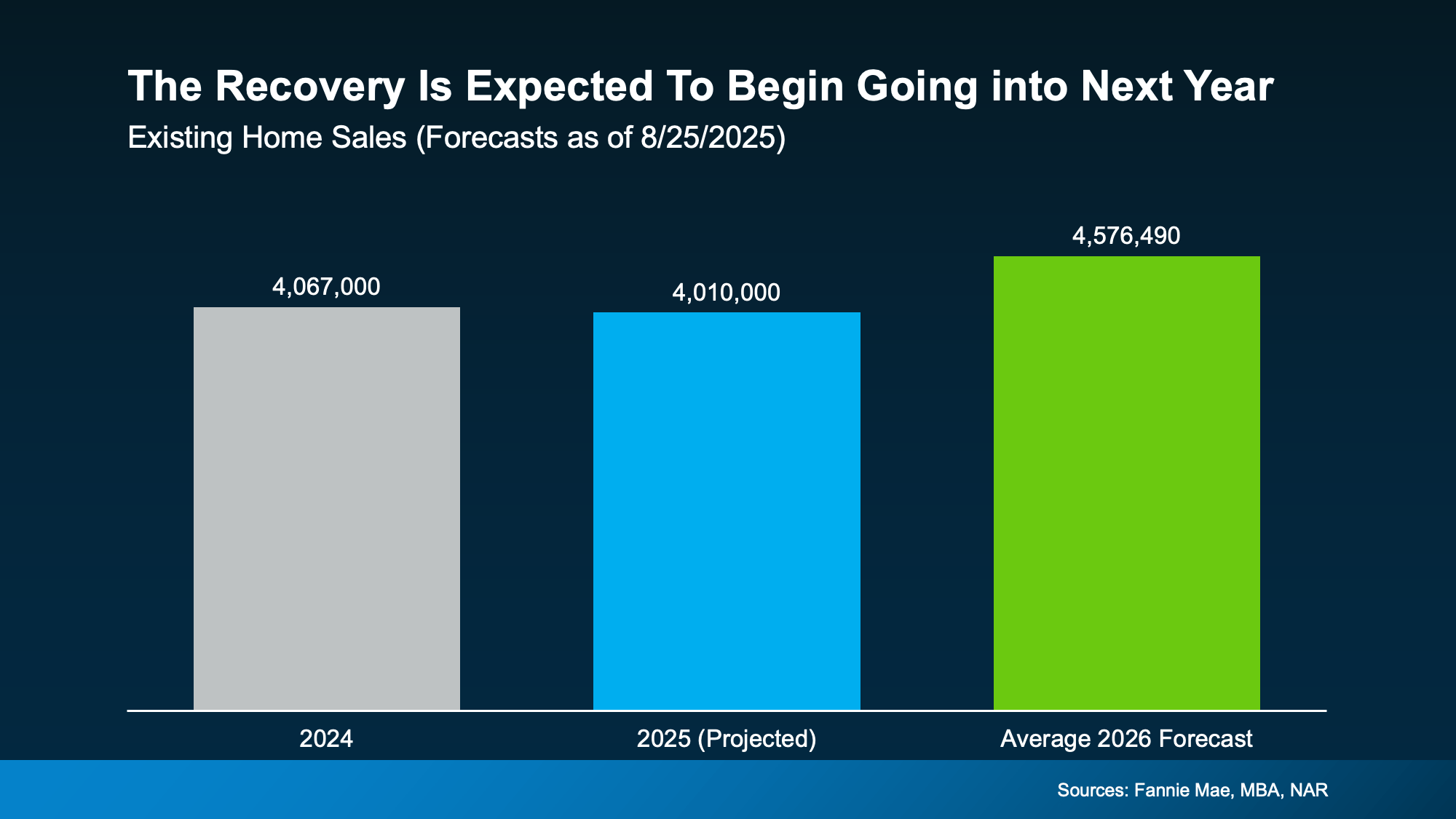Now that the market is slowing down, homeowners who haven’t sold at the price they were hoping for are increasingly pulling their homes off the market.
According to the latest data from Realtor.com, the number of homeowners taking their homes off the market has increased by 38% since the start of this year and by 48% since the same time last June.
For every 100 new listings in June, about 21 homes were taken off the market.
And if you’ve made that same choice, you’re probably frustrated that things didn’t go the way you wanted. It’s hard when you feel like the market isn’t working with you. But while slowdowns can be painful in the moment, history tells us they don’t last forever.
History Repeats Itself: Proof from the Past
This isn’t the first time the housing market in 2025 has experienced a slowdown. Here are some other notable times when home sales dropped significantly:
- 1980s: When mortgage rates climbed past 18%, buyers stopped cold. Sales crawled for years. But as soon as rates came down, sales surged back, and the market found its footing again.
- 2008: The Great Financial Crisis was one of the toughest housing downturns in history. Sales and prices both dropped hard. Still, sales rebounded once the economy recovered.
- 2020: During COVID, sales disappeared overnight, and many people had to put their plans on hold. Yet the recovery was faster than anyone expected, with a surge of buyers re-entering the market as soon as restrictions eased.
The lesson is clear: no matter the cause, the market always rebounds.
Today’s Situation: Where We Stand Now
Over the past few years, home sales have been sluggish. And one big reason why is affordability.
Mortgage rates rose at a record-breaking pace in 2022, and home prices were climbing at the same time. That combination put buying out of reach for many people. And when demand slows, home sales do too.
The Outlook: Why Things Will Improve
But here’s the encouraging part.
Forecasts show sales are expected to pick up again moving into 2026.
Last year, just about 4 million homes sold (shown in gray in the graph below). And this year is looking very similar (shown in blue). But the average of the latest forecasts from Fannie Mae, the Mortgage Bankers Association (MBA), and the National Association of Realtors (NAR) show the experts believe there will be around 4.6 million home sales in 2026 (shown in green).
A significant reason behind this projection is the expectation that mortgage rates will decrease slightly, making it easier for more buyers to re-enter the market.
 That means what’s happening now is part of a cycle we’ve seen before. Every slowdown in the past has eventually given way to more activity, and this one will too.
That means what’s happening now is part of a cycle we’ve seen before. Every slowdown in the past has eventually given way to more activity, and this one will too.
Just as the 1980s, 2008, and 2020 experienced temporary dips in home sales, today’s dip is also expected to be temporary.
What That Means for You
If you’ve paused your moving plans, you did what you thought was right. Your frustration is valid. However, it’s also essential to consider the broader context. Housing slowdowns don’t last forever.
That’s where your local real estate agent comes in. Their job is to monitor the market on your behalf closely. When the first signs of a rebound appear, they’ll help you spot the shift early so you can relist with confidence.
What This Means for the Chicago Housing Market
If today’s housing market feels stuck, remember it’s never stayed down for good. Slowdowns end, activity returns, and people get back on the move again.
That’s why it’s so important to stay ahead of the curve. By working with trusted real estate companies in Chicago, Illinois, you’ll know precisely when the rebound begins.
With the latest Chicago housing market predictions indicating sales growth by 2026, now is the time to prepare.
So, let’s connect with our real estate brokers in Chicago, because when the next wave of buyers shows up, you won’t want to miss it.
As activity picks up again, will you be ready to put your house back on the market, or do you need to move sooner?

